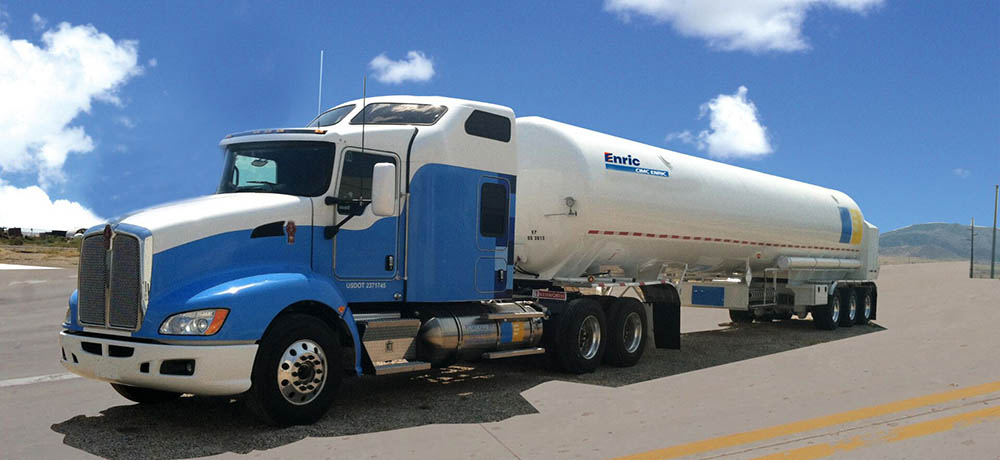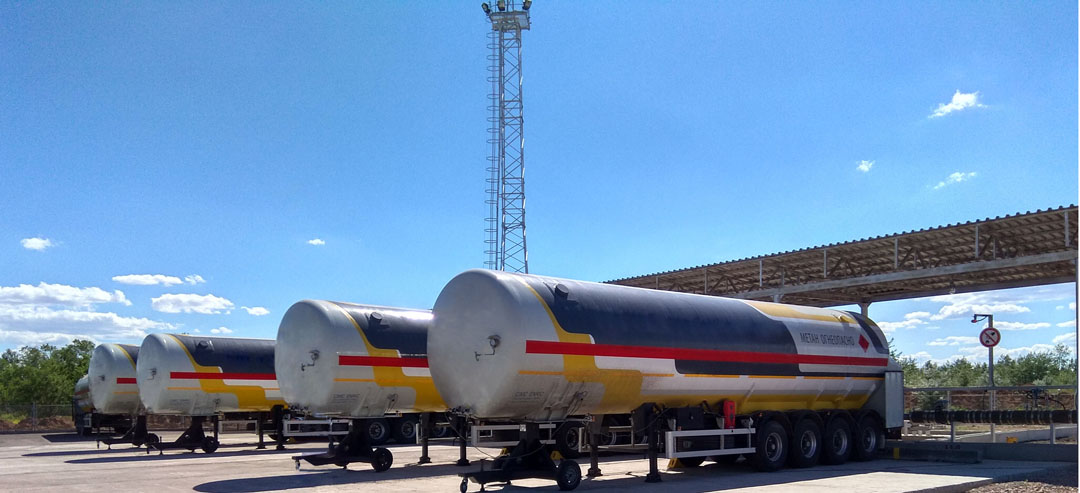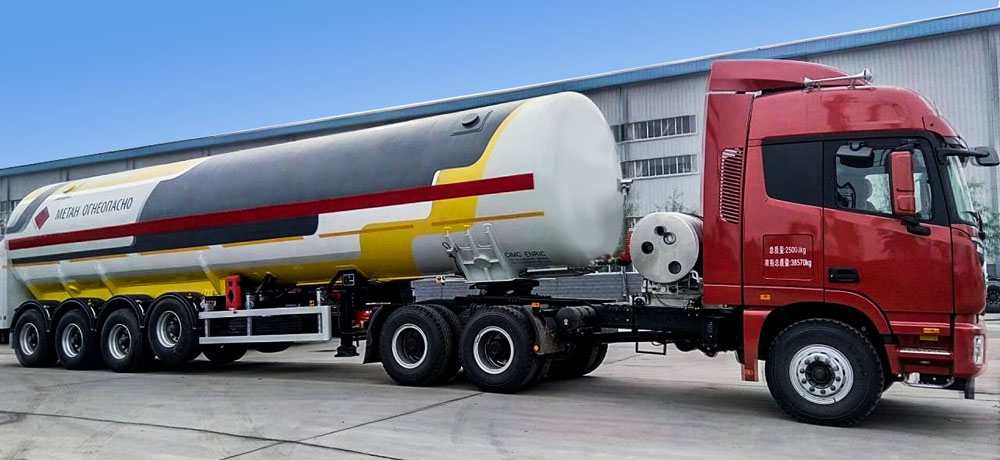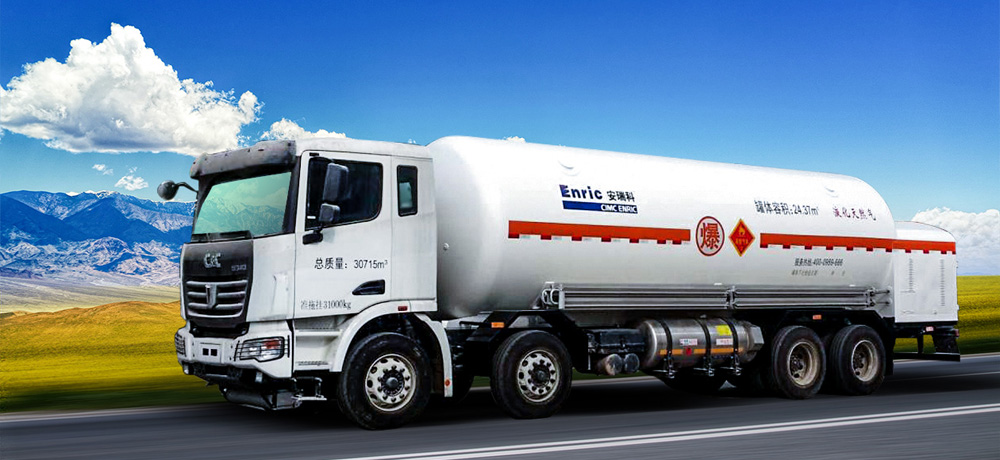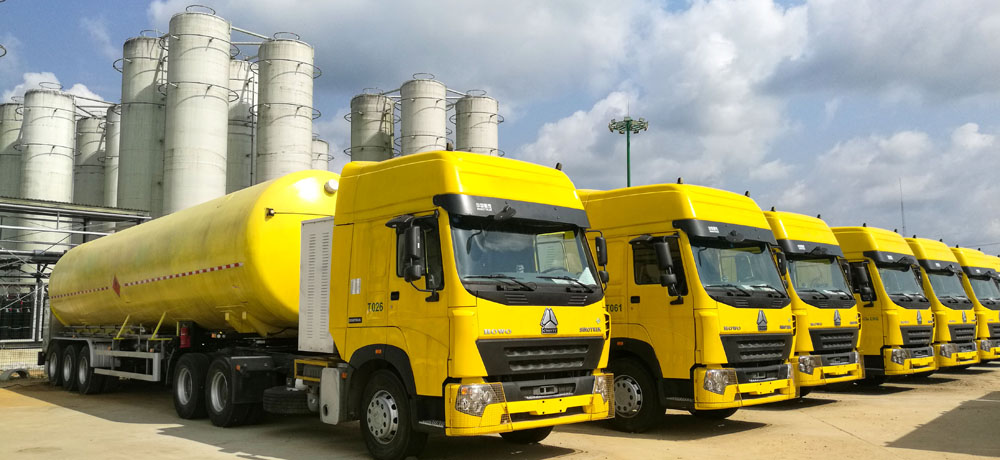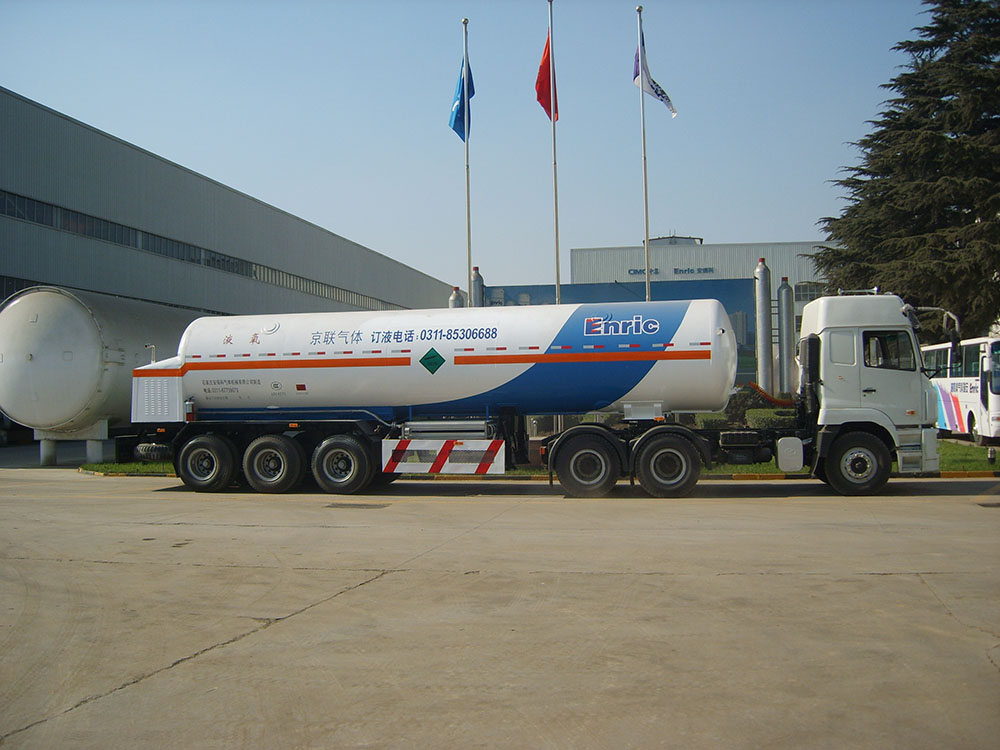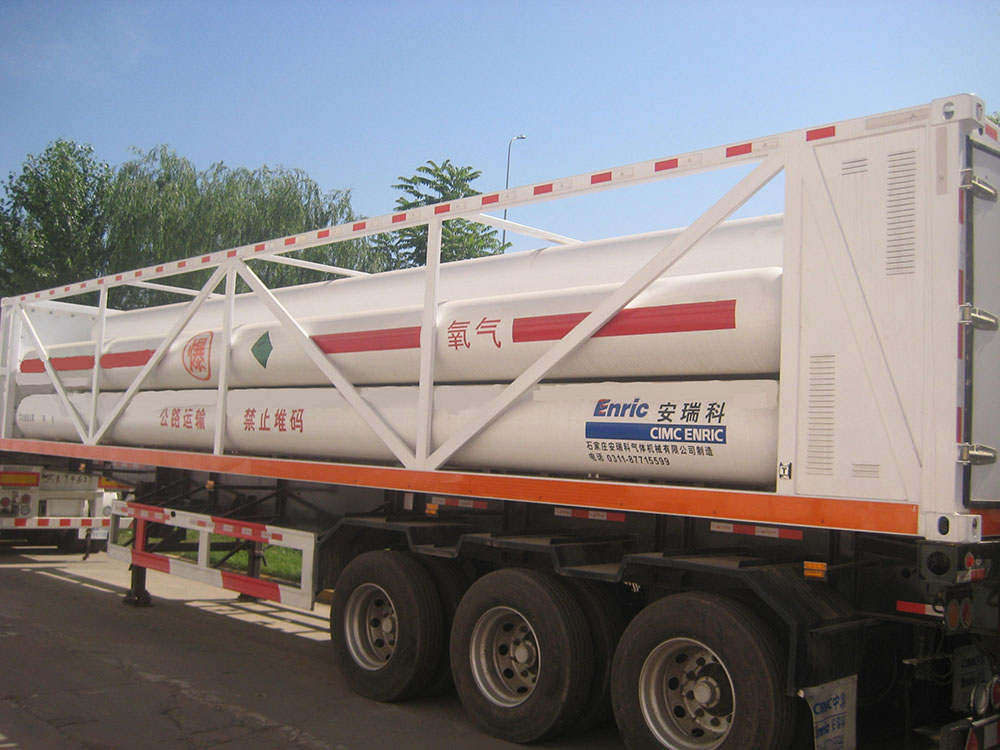LNG Tanker Truck
What is LNG Tanker Truck?
While international transport of liquefied natural gas (LNG) in many countries is now mostly carried on large cruise ships, there is another way of transporting LNG by road - lng tanker truck- that can open up the market for you to transport internationally across borders. A high-quality LNG tanker truck is particularly important. Specially designed lng tanker truck for road transport of LNG.
CIMC ENRIC LNG Tanker Truck is specifically designed to transport liquefied natural gas from one location to another with maximum safety and efficiency. It offers a reliable and cost-effective solution for the transportation of LNG, making it ideal for various industries and applications.
Gas Tanker Truck Capacity
The machine builder offers a wide selection of tanks for transporting liquefied natural gas (LHG, LPG). Our product range currently includes LNG tankers with a capacity of 52,600 L LNG trucks with a capacity of10,620 L to 37,400 L.
How LNG tanker trucks work
Heavy-duty liquefied natural gas (LNG) vehicles work much like petrol-powered vehicles with spark-ignition internal combustion engines. LNG is usually more expensive than compressed natural gas (CNG) and is most commonly used in heavy duty vehicles for longer distances. Because it is a liquid, LNG has a higher energy density than CNG, so more fuel can be stored on an LNG tanker truck.
Read on to find out more about the lng tanker truck.
CIMC ENRIC is the Chinese market and technology leader for cryogenic tanks and LNG Tanker Truck for LNG powered commercial vehicles. CIMC ENRIC is the preferred supplier for OEMs as a complete value chain supplier from R&D/engineering to sequential logistics. CIMC ENRIC refuelling systems are economical, durable and help to reduce CO2 emissions in heavy transport.
CIMC ENRIC offers tanks for transportation of liquefied natural gas (LHG, LPG) in a variety of options. Currently our product range includes LNG tanker truck with capacity of 15 300 L, LNG truck with capacity of 30 600 L and road train of 2 tanker trailers of 15 300 L each
| Lng Tanker Truck | ||||
| Water Volume(M3) | Working Pressure(Bar) | Tare Weight(Kg) | Total Weight(Kg) | |
| 52(Customized as users demands) LNG Tanker Truck | 7 | 15000 | 35000 | 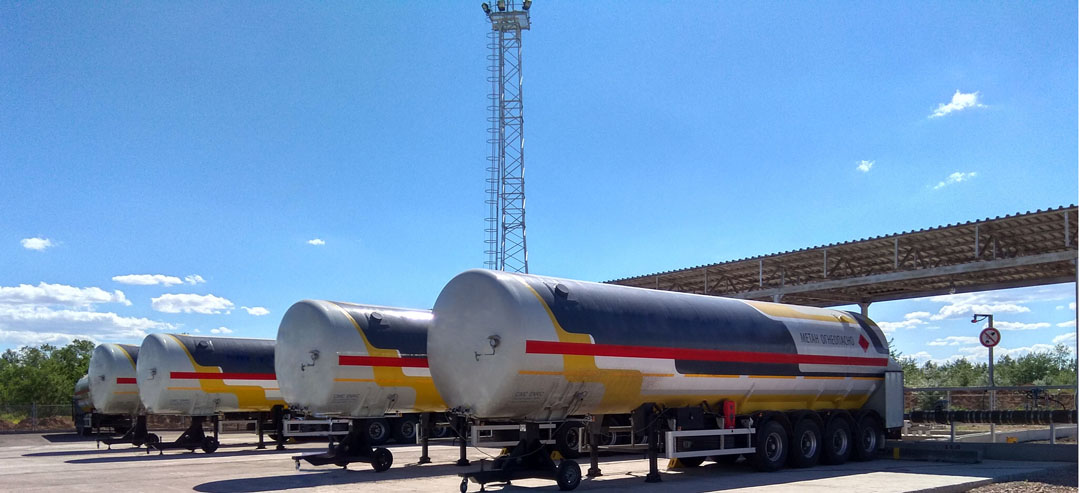 |
| 52.08(Customized as users demands) LNG Tanker Truck | 7 | 17780 | 37720 | 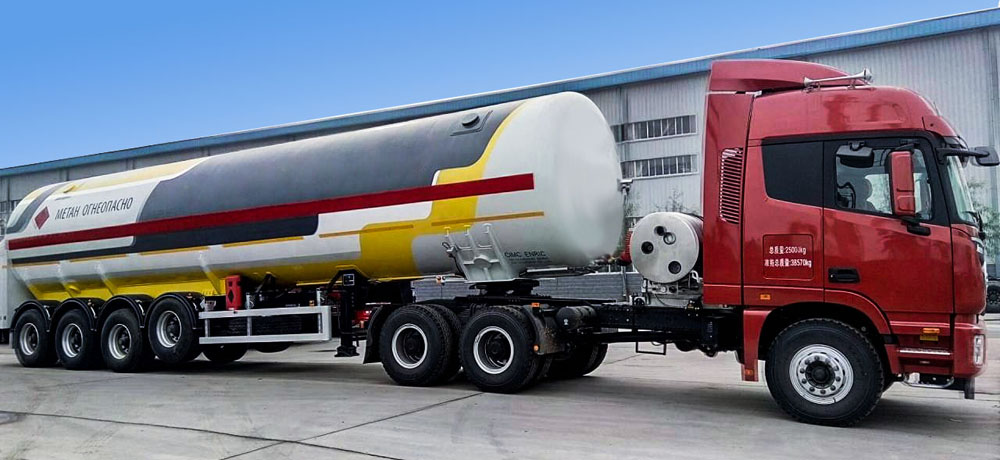 |
| 52.6(Customized as users demands) LNG Tanker Truck | 7 | 16700 | 38400 | 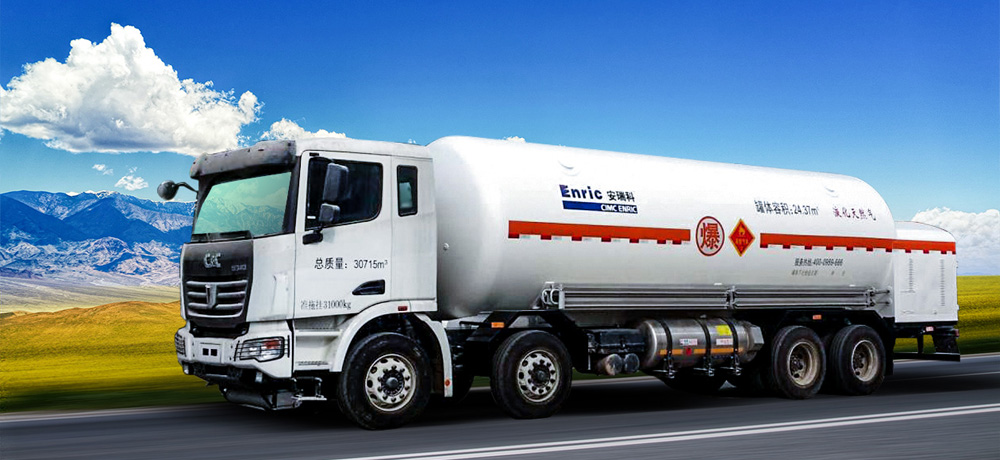 |
Gas tanker truck related certifications
The factory products comply with certifications for LNG transport, such as GB, GOST, DOT, RS-110. Each LNG truck is equipped with reliable foreign-made devices, precision instruments and level gauges.
Regional Application Scenarios for LNG Transport Trucks
LNG transport trucks, with their adaptability, play a vital role in enabling efficient and flexible energy logistics across diverse markets:
☑ Europe: With a strong focus on decarbonization and clean energy, LNG transport trucks are used extensively across EU member states for industrial fuel supply, long-haul trucking, and peak-shaving power generation. These vehicles are meticulously built to meet ADR and EN standards, ensuring full compliance and safety on European roads.
☑ Latin America: In countries where pipeline infrastructure is limited, LNG transport trucks offer a cost-effective solution for delivering energy to remote communities, off-grid industries, and small-scale power plants. Their mobility not only supports regional energy independence but also empowers local development.
☑ Asia-Pacific: Rapid industrialization and urbanization in countries like China, India, and Southeast Asian nations have increased the demand for clean fuel logistics. LNG transport trucks bridge the gap between LNG terminals and inland users, including factories, fleets, and decentralized energy systems. For instance, in China, LNG transport trucks are used to supply fuel to large manufacturing plants and for long-distance transportation of goods.
☑ Russia & CIS: Designed for extreme weather and long-distance hauling, LNG transport trucks are essential for ensuring year-round energy supply to mining camps, remote settlements, and oilfield operations in Siberia and beyond. Their insulation and pressure-retaining capabilities make them ideal for subzero environments.
Key Features:
Robust Construction: The LNG Tanker Truck is built with high-quality materials and engineering expertise, ensuring durability and long-term performance even under demanding conditions.
Advanced Insulation: The truck features advanced insulation techniques and materials to maintain the low-temperature environment required for LNG transportation. This ensures minimal heat transfer and keeps the LNG in its liquid state.
Safety Systems: We prioritize safety, and our LNG Tanker Truck is equipped with comprehensive safety systems, including emergency shut-off valves, pressure relief devices, and advanced monitoring systems. These features help prevent accidents and ensure the security of the transported LNG.
Capacity and Efficiency: Our tanker truck is available in various capacities to meet different customer requirements. We optimize the design to maximize payload while maintaining the highest levels of safety and efficiency.
Regulatory Compliance: The LNG Tanker Truck complies with all relevant safety and environmental regulations and standards, ensuring legal compliance and minimizing any negative impact on the environment.
Easy Operation and Maintenance: We have designed the tanker truck for user-friendly operation and simplified maintenance. The intuitive control panel and accessible maintenance points make it easier for drivers and maintenance personnel to handle the vehicle efficiently.
Customization Options: We understand that different customers may have unique requirements. Therefore, we offer customization options to tailor the LNG Tanker Truck according to specific needs, including capacity, design, and additional safety features.
LNG tanker truck interior construction
These trailers include a horizontal vacuum insulated tank consisting of an "internal" pressure vessel and a structural frame/vacuum vessel "external" jacket. jacket.
Benefits of the LNG tanker truck
Reduce the impact of logistics on the climate and actively contribute to the sustainable transport of retail LNG in France and Europe.
Allows customers not connected to the transport network (industry and municipalities) to benefit from this cleaner, less CO2-emitting energy source.
Achieving sustainable transport patterns.
Transporting LNG by truck requires fast work.












